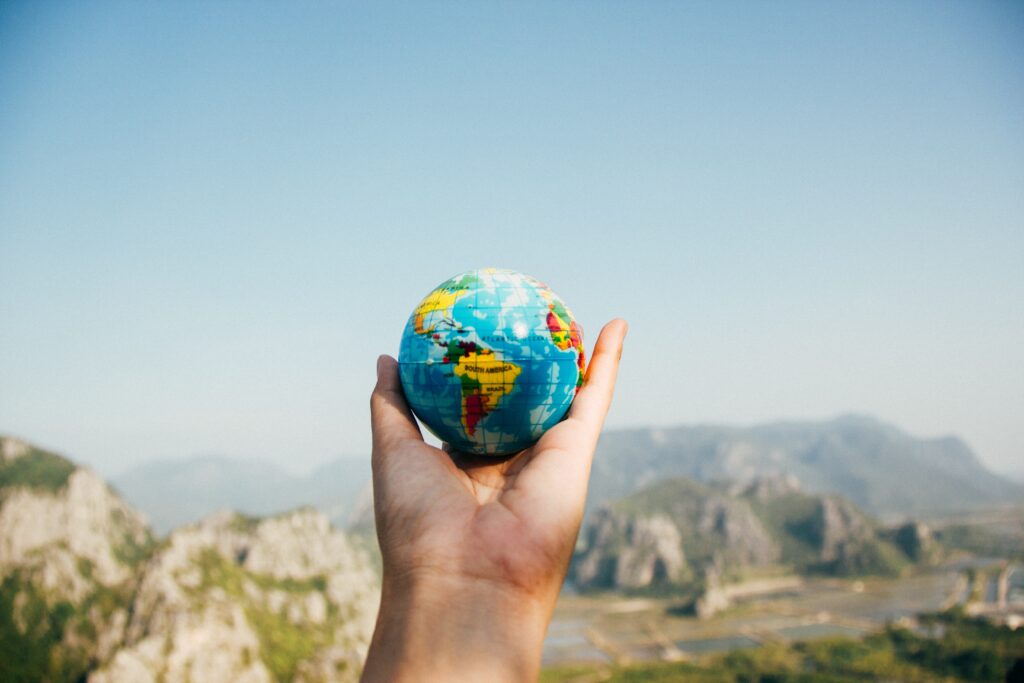The Role of Trade in International Relations
International relations and trade go hand in hand in shaping a country’s development. How countries interact with one another and the exchange of goods and services across borders play a crucial role in achieving economic goals. To succeed in the globalized world, it is essential to implement trade policies that foster positive international relations. International relations refer to the interactions and relationships between nations in the global community. These interactions are often guided by a system of understanding and behaviour across borders. On the other hand, international trade involves the transfer of ownership of products and services between countries. This exchange of goods and services can significantly impact a country’s economy, as it can provide opportunities for growth and prosperity.”

The History of Trade as a Tool of Diplomacy
This form of commerce requires policies allowing access to domestic and international markets. Nations with good international relations often implement lenient trade policies that will enable the government to benefit from international specialization and division of labour. Trade exists to ensure that citizens receive competitive goods and services. It helps economies with a comparative advantage in some tradable commodities expand their target markets. It gives domestic markets a benchmark for the appropriate market prices between locations. This exchange of capital, goods, and services across international borders is essential to gross domestic product (GDP).
These broad international relations span many facets, e.g., private, state, non-governmental, and inter-governmental organizations. These institutions design and influence policy directives that oversee these interactions. The interactions are heavily based on psychological and social-psychological principles. It is a highly interactive concept that requires high levels of communication. This communication often involves dialogue, negotiation, and representation. Foreign policymakers act on the information gathered for them through international diplomacy systems.
Historically, International Relations have always shaped how countries form trade policies. The relationships between sovereign states have often been examined to help shape the relations between multinational corporations, inter-governmental organizations, non-governmental organizations, and international non-governmental organizations.
Academically, these two facets have always been closely related to public policy. The concept of international relations has been around since the Greek historian Thucydides. He spoke about the need for international cooperation in ca. 460–395 BC. This concept and its relation to trade because popularized in the early 20th century. During this time, it began to be viewed as a discrete academic field within political science.
The Economic Impact of Trade on International Relations
Multinational corporations help distribute wealth globally; therefore, trade agreements influence the global distribution of power and control. The balance of power in intergovernmental relations between states rests heavily upon the trade arrangements between states. These hefty trade agreements help foster collective national security.
The Political Implications of International Trade
International trade has been a highly debated topic throughout much of history. It has far-reaching political, economic, and social consequences. Politically, international trade has been a relevant topic since the 20th and 21st centuries. Diplomacy helps boost geopolitical peace and stability. A good economy is often good for politics; therefore, diplomacy is key to achieving a prevailing order that facilitates the peaceful exchange of trade and commerce. Global trade is enabled by policies that government officials draft. These politicians can allow consumers and countries access to new markets. This access breeds more competition in products and services.
Politicians must deliver results to their voters in a democracy to ensure they retain their political seats. A standard measure of political success is the current account in the balance of payments. Politicians may advocate for reducing trade tariffs to allow for enhanced trade. Sectors promoting industrialization through advanced technology are often provided subsidies to help them take over global markets. Politicians provide these financial bailouts to help their countries garner a more significant piece of the global markets. These packages are often distributed to multinational corporations as incentives. They help guard against protectionist policies and the outsourcing of international trade services.
The Future of Trade in International Relations
The globalization phenomenon will likely continue to surge in the coming years. Increasing international trade is one of the factors contributing to this statistic. International business between nations will grow as nations seek goods and services produced from across international borders. The main goal of global trade is to generate profits. Countries are forced to improve their international relations to improve trade. This task will help them provide additional opportunities for businesses in their country. Governments will likely remove the barriers that make global trade more costly than domestic trade. Tariffs paid at the border will decrease, logistical issues will be reduced, and country differences, e.g., language, laws, and culture will become easier to navigate.
The main challenges holding back improved international relations and trade often revolve around the factors of production. Every nation wants to boost the use of its capital and labor to strengthen its economy. These factors are often more viable within a country than across countries. This factor means that international trade requires high levels of diplomacy to succeed. Trading goods and services internationally are often only beneficial to a nation when they export more than they import. An export surplus promotes a healthy balance of payments current account. Many countries often turn to international borders when they need more for their citizens through domestic supply, regardless of the intensive use of the factors of production.







































